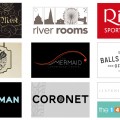
6 tips for hospitality websites you should know
Hospitality websites are fiercely competitive. The key is to make information easily accessible to the users. If this isn’t true on your website, the guest will leave and visit the next website that popped up on Google.
It all comes to to the design of your website. Most popular hotels include a booking or availability search window on the homepage. Usually it is one of the first things you see when entering the website, users are now becoming accustomed to it and expect to see that area. If you were to break away from these norms, you are taking a risk at the end of the day.
Here are 6 tips for hospitality websites you should know:
1) Plan your website.
Whatever the cost of your website, you don’t want to pay for it twice, meaning make sure you plan it carefully so you get it right the first time round. Research similar sites to see what is popular and what can work. Don’t always presume that different is better, and will set you apart. You don’t want to confuse your users.
Time spent researching is time well spent.
2) Don’t ruin the structure.
When updating your website through a Content management system you can expect to see several benefits, but be careful not to outgrow your current sitemap and structure. Adding irrelevant content or adding it in the wrong area can make navigating the site difficult for your guests.
3) Use it yourself.
There is nobody better than yourself to test your hospitality websites. If you and your staff can understand how to use the website or booking system without extensive instructions then it means the user experience is positive and guests with have no trouble when navigating your website.
4) Treat it as a brand experience.
Branding in hospitality is priceless, because among many thing sit means your guests can associate your name to a standard of quality. Make sure that your website design portrays the same message as your branding. Branding is not just a logo and a colour scheme, it is the entire business ranging from pens to people, and includes your website.
5) Make it effortless.
Make sure your website is easy to use and avoid interrupting a customer’s journey towards a booking. If a guest has to think about what they are doing when browsing your site, chances are they will lose interest and move on. If your website proves to be hard to use, it will have an impact on guest loyalty, which is hard to maintain anyway in this era of on-line booking.
6) Invisible architecture
If a website is designed well, the site architecture will be ‘invisible’ to the user. All visitors should be able to flow through the site and perform tasks with extreme ease. The simpler and more invisible the booking process is, the more time, money and expertise has been spent on getting that flow to be just right.
Here are our 6 tips for hospitality websites. The list is only part of what is necessary and much more could be added. If you are interested in discussing website design for your hospitality business, please contact us by filling in the form below.




